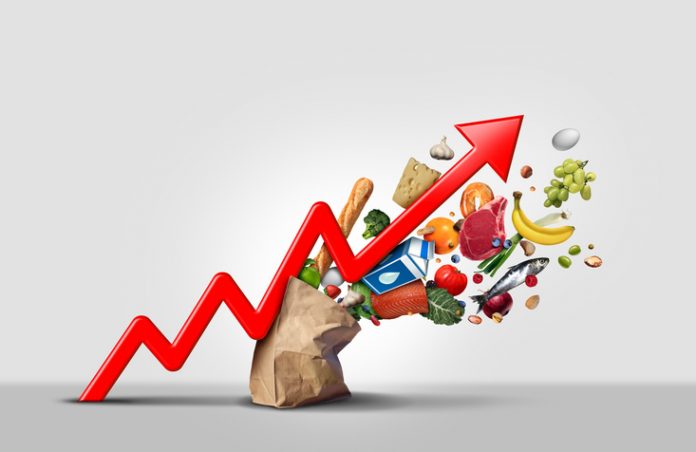Candidate Joe Biden promised to solve our problems and restore faith in the American government. Today, he is one of the least popular presidents in history. And CNN’s John Harwood, perhaps the most sycophantic flunky of the Democratic Party not on the company payroll, says that Biden is a victim of circumstances, facing problems that are beyond solving.
Maybe Biden, who promised to “shut down the virus” rather than the country, shouldn’t be taking credit for every job that’s been “created” by reopening a healthy economy largely shut down by government mandates that Democrats supported and encouraged. It must be nice taking ownership of only the positive outcomes you had nothing to do with. But the pandemic, which virtually every nation struggled to overcome, was not Donald Trump’s doing. Nor was the housing-market crisis George W. Bush’s. That never stopped liberals from blaming them.
That’s political reality. Yet, in this case, Biden did plenty to aggravate the embedded problems we faced by pushing historically gratuitous spending bills and hard-left policy ideas, rather than showing any basic competence for the job.
“There’s not much he can do to stop migrants from reaching America’s southern border,” Harwood contends. Well, not now. During his campaign, Biden’s critique of Trump’s tightening of the border was not that it was poorly administered but that it undermined American values. You can take any position you like, but it was clear that Democrats were going to trigger a crush on the border. Even before he was inaugurated, the Washington Post editorial board, certainly no hawks on the matter, warned Biden that he “need(ed) to restore American values to immigration policy without triggering a border surge.” The president didn’t take the paper’s advice, immediately shutting down border-wall construction and scrapping the “Remain in Mexico” policy, which impelled migrants to wait in that country while their claims were being adjudicated in court. (The administration was forced by a court to reinstate the policy.) Biden also left similar agreements with Guatemala, El Salvador and Honduras and undid Trump-era-reinstituted “public charge” policies that barred immigrants from participating in welfare programs. Biden had promised to double the number of immigration judges and staff, which he did not follow through on.
“There’s not much he can do to curb inflation,” Harwood says. The Biden administration spent a year dismissing inflation fears despite numerous warning signs, contending that inflation was only “transitory,” that “no serious economist” was “suggesting there’s unchecked inflation on the way,” laughing off price spikes as a “high-class” problem, and arguing that higher costs might actually be a good thing. On a number of occasions, the White House laughably argued that trillions more in deficit spending would help ease inflation. Biden took this position because contemporary Democrats were intent on passing their own New Deal. This, after Democrats threw $2 trillion into an overheating economy, on top of the $3 trillion bipartisan COVID-relief bill. Democrats passed another trillion-plus-dollar infrastructure bill, with the help of some Republicans. Only two sensible Senate Democrats stopped the majority from cramming through a $5 trillion social-spending “investment”—which Harwood would be defending today had it passed. Those who warned that easy monetary policy and big post-lockdown federal spending was a bad idea were dismissed.
“Efforts to smooth gnarled supply chains, use the Strategic Petroleum Reserve to expand oil supplies or waive air pollution regulations to produce more fuel with less gas can modestly offset rising prices,” Harwood writes.
Indeed, the supply chain problems aren’t Biden’s fault. He is at fault for spending his time crusading for hard-left-wing causes rather than pushing a moderate case for untangling destructive labor-relations law or repealing the Jones Act. Even Jimmy Carter attempted to deregulate certain industries.
Instead of lowering regulatory burdens on companies or preemptively easing possible energy shocks, Biden immediately rejoined the Paris Agreement and revoked permits to build the Keystone XL, a pipeline that was going to carry approximately 800,000 barrels of oil a day. The president signed a slew of executive orders prioritizing climate change over energy production, halting any new oil and natural gas leases on all public lands. When a court blocked the order, the Biden administration appealed the decision, even though there were indications that energy prices would be rising.
When Republicans win the presidency, they are immediately responsible for everything—including the spread of disease. When Democrats win the White House, the job gets too big, the government becomes too unwieldy, the bureaucracy too unmanageable, the circumstances too much to overcome, and the American people simply too hard to reach.
Harwood, and others, will never take the next logical step in their case and reach the conclusion that presidents should make fewer promises and act with more modesty. They will never concede that the federal government is far too large and that local control is preferable. As long as Democrats are in power, they keep advocating for a bigger state, for more centralized power, for more regulation and for more spending.
David Harsanyi is a senior writer at National Review and author of “Eurotrash: Why America Must Reject the Failed Ideas of a Dying Continent.” To read features by other Creators Syndicate writers and cartoonists, visit the Creators Syndicate webpage at www.creators.com.
COPYRIGHT 2022 CREATORS.COM











